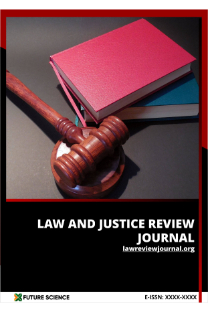İnfluence of the christianityon the development of the European union
Christianity, as a predominant religion has played a crucial role in the evolution of the Europe, thus observed with interest in the area of Euro-pean integration studies. There are some surprising arguments that speak in favour that one of the emerging leading economical powers in the world, the European Union (EU), is founded and driven upon religious ideals, namely upon principles of Christianity and its values. Christian Democracy (CD) is a political movement which was born at the end of the 19th century. Christian Democracy seeks to apply Christian principles to public policy. It emerged under the influence of Catholic Social Teach-ing, and continues to be influential in the Europe and Latin America. The Europeans must make a distinction between being a European and being a Christian, if they really want to make integration possible for all Euro-peans, whatever their religious beliefs might be, since the EU is not a local project but a supranational and multi-cultural one. There are huge discussions about the arguments that speak in favour of Christian influ-ence in the EU include the affiliation with the religion of the founding fathers, adoption of a number of principles within the EU that are deemed religion principles, etc.
___
Adonis, A. (1991), Subsidiarity: Theory of a New Federalism? in Preston King and Andrea Bosco (eds.), A Constitution for Europe, Lothian Foundation Press, LondonCatholic Social Teaching, U. S. Catholic Bishops, Economic Justice for All (1986), Online at www.osjspm.org/economic_justice_for_all.aspx. (accesed on 29 March 2009)
Dabin P. (1989), The Search for the Intellectual Basis of Christian-Democracy in European Peoples Party, Efforts to Define a Christian Democratic Doctrine, (Brussels: Parliamentary Group of European Peoples Party, Occasional Papers No. 2)
Deschouwer, Kris. (1995), Book Rewiew of Christian Democracy in Europe: A comparative Perspective, David Hanley, (ed.) Political Studies
Economist (Magazine), 17 March 1990
Fogarty, M. (1957), Christian Democracy in Western Europe (1820-1953), University of Notre Dame Press, Indiana
Hanley, D. (1994), Christian Democracy in Europe: A Comperative Pers-pective, Pinter Publishers, London
Kaiser W. (2004),Transnational Christian Democracy: From the Nouvelles Equipes Internationales to the European Peoples Party, in Gehler, M and Kaiser, W. (eds), Christian Democracy in Europe Since 1945, Routledge, London
Kalyvas, Stathis N. (1996), The Rise of Christian Democracy in Europe, Cornell University Press, New York
Keating M. (1999), The Politics of Modern Europe, Second edition, Edward Elgar Publishing Ltd, Cheltenham
Lex Heerma van Voss and Marcel van der Linden, (eds.) (2002), Class and Other Identities, Berghahn Books
Menendez, A.J. (2005), A Pious Europe? Why Europe Should Not Define Itself as Christian European Law Review, 30 (1), 133-148, Sweet& Maxwell Limited and Contributors
Nugent, N. (2003), The Government and Politics of The European Union, Palgrave Macmillian, New York
Irwing, R.E.M. (1979), The Christian Democratic Parties of Western Europe, George Allen & Unwin Ltd., London
Pulzer, P. (2004), Nationalism and Internationalism in European Christian Democracy, in Gehler, M. and Kaiser, W. (eds), Christian Democracy in Europe Since 1945, Routledge, London
Srdjan C. and Lorenzo Z. (2004), Does the European Constitution Need Christian Values? Oxford Journal of Legal Studies
Stephen V. Monsma (2006), The Relevance of Solidarity and Subsidiarity to Reformed Social and Political Thought, A paper prepared for The International Society for the Study of Reformed Communities, Princeton
Woodhead, L.(2004), Christianity: A Very Short Introduction, Oxford University Press, New York http://en.wikipedia.org/wiki/Quadragesimo_ Anno (accessed on 23 April 2009) www.osjspm.org/economic_justice_for_all.aspx (accessed on 28.3.2009)
- ISSN: 1309-9485
- Yayın Aralığı: Yılda 2 Sayı
- Başlangıç: 2010
- Yayıncı: Türkiye Adalet Akademisi
Sayıdaki Diğer Makaleler
Judicial independence in excess: Reviving the judicial duty of the supreme court
Paul D. CARRINGTON, Roger C. CRAMTON
Development in the court management system in Turkey
Diverse cultures and official laws: Multiculturalism and Euroscepticism?
İnfluence of the christianityon the development of the European union
Über besondere regelung der verjährung bei straftaten gegen das kind systemkritische überlegung
Participation in international criminal law
An assessment of the lisbon treaty in light of the objectives of the leaken declaration
Der moralische und rechtliche status und die schutzwürdigkeit des menschlichenembryonen
